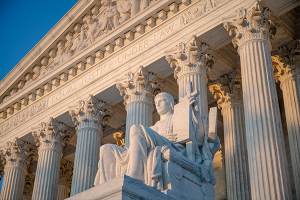Advocacy
What is the fundamental issue?
Net neutrality is shorthand for the concept that Internet users should be in control of what content they view and what applications they use on the Internet. More specifically, net neutrality requires that broadband networks be free of restrictions on content, sites, or platforms. Networks should not restrict the equipment that may be attached to them, nor the modes of communication allowed on them. Finally, networks should ensure that communication is not unreasonably degraded by other communication streams.
I am a real estate professional. What does this mean for my business?
The business of real estate is increasingly conducted on-line. Streaming video, virtual tours and voice-over-internet-protocol are just some of the technologies that are commonly used by real estate professionals today. In the future, new technologies will be adopted which will no doubt require unencumbered network access.
Some real estate professionals, realty website operators and real estate industry affiliated content providers believe net neutrality provisions are necessary to prevent broadband providers (cable and telephone companies, primarily) from implementing possibly discriminatory practices that could negatively impact real estate professionals’ use of the Internet to market their listings and services. Some possible examples include practices that would (1) limit the public’s access to real estate websites, (2) limit a real estate firm access to online service providers who may be in competition with the network operators’ (ISP’s) own services, e.g. Internet phone services, or (3) charging certain websites more for the broadband speeds necessary to properly transmit or display audio or video content such as online property tour, podcast or phone services.
NAR Policy:
NAR supports legislative and regulatory efforts to ensure that broadband providers adhere to net neutral practices. NAR is concerned about the FCC's "fast lanes" proposal and has commented in opposition to that proposal in 2015.
The business of real estate is increasingly conducted on-line. Streaming video, virtual tours and voice-over-internet-protocol are just some of the technologies that are commonly used by real estate professionals today. Net neutral practices will be essential to ensure that real estate content can be freely and efficiently distributed online.
NAR supports seven principles to guide lobbying efforts on any legislation to require broadband providers to adhere to net neutral practices:
- Consumers are entitled to access the lawful Internet content of their choice;
- Consumers are entitled to run applications and services of their choice, subject to the needs of law enforcement;
- Consumers are entitled to connect their choice of legal devices that do not harm the network;
- Consumers are entitled to competition among network providers, application and service providers, and content providers;
- Network providers should not discriminate among internet data transmissions on the basis of the source of the transmission as they regulate the flow of network content;
- Broadband providers must be transparent about the service they provide and how they run their network and;
- These principles should apply to both wireless and wireline networks.
Legislative/Regulatory Status/Outlook
On April 27, 2017 the FCC issued a proposal to rollback the 2015 Open Internet Order. This proposal would:
- Eliminate Title II regulation of Internet Service Providers thereby eliminating FCC authority to regulate ISPs.
- Shift regulatory authority for privacy and anti-competitive concerns to the Federal Trade Commission.
- Eliminate the Internet Conduct Standard, a broad rule giving the FCC the authority to act if a broadband provider acts in a manner that is anticompetitive or harmful to consumers.
- Seeking public comment on "Bright Line Rules" or rules that prohibit the control of the flow of web traffic like blocking, degrading or creating fast lanes should be eliminated or modified.
On July 17, 2017, NAR filed comments with the FCC opposing rollback of open internet rules.
On December 14, 2017, the FCC voted on to dismantle its net neutrality regulations.
The issue then moved to the courts, where several groups challenged the FCC’s decision. Congress also considered legislation that would codify the rules in law.
In the 115th Congress, Representative Coffman (R-CO) Introduced H.R. 6393, The 21st Century Internet Act - Legislation that would codify net neutrality protections. NAR supported this legislation.
On June 11, 2018, however, the FCC's repeal of net neutrality rules took effect.
On October 1, 2019, the DC Circuit Court of Appeals upheld the FCC’s decision but found that the FCC had overstepped its authority when it banned states from enacting their own net neutrality rules. California, New Jersey, Oregon, Vermont and Washington have already enacted legislation or adopted resolutions protecting net neutrality. Thirty-four states and the District of Columbia have introduced bills and resolutions. NAR will continue to work with Congress and the FCC to protect our members’ ability to freely share lawful content on the internet.
NAR Committee:
Federal Technology Policy Committee
Current Legislation/Regulation
FCC's “Restoring Internet Freedom Order"In-Depth
Legislative Contact(s):
Olive Morris
OMorris@nar.realtor
202-383-1215
Regulatory Contact(s):
Olive Morris
OMorris@nar.realtor
202-383-1215











